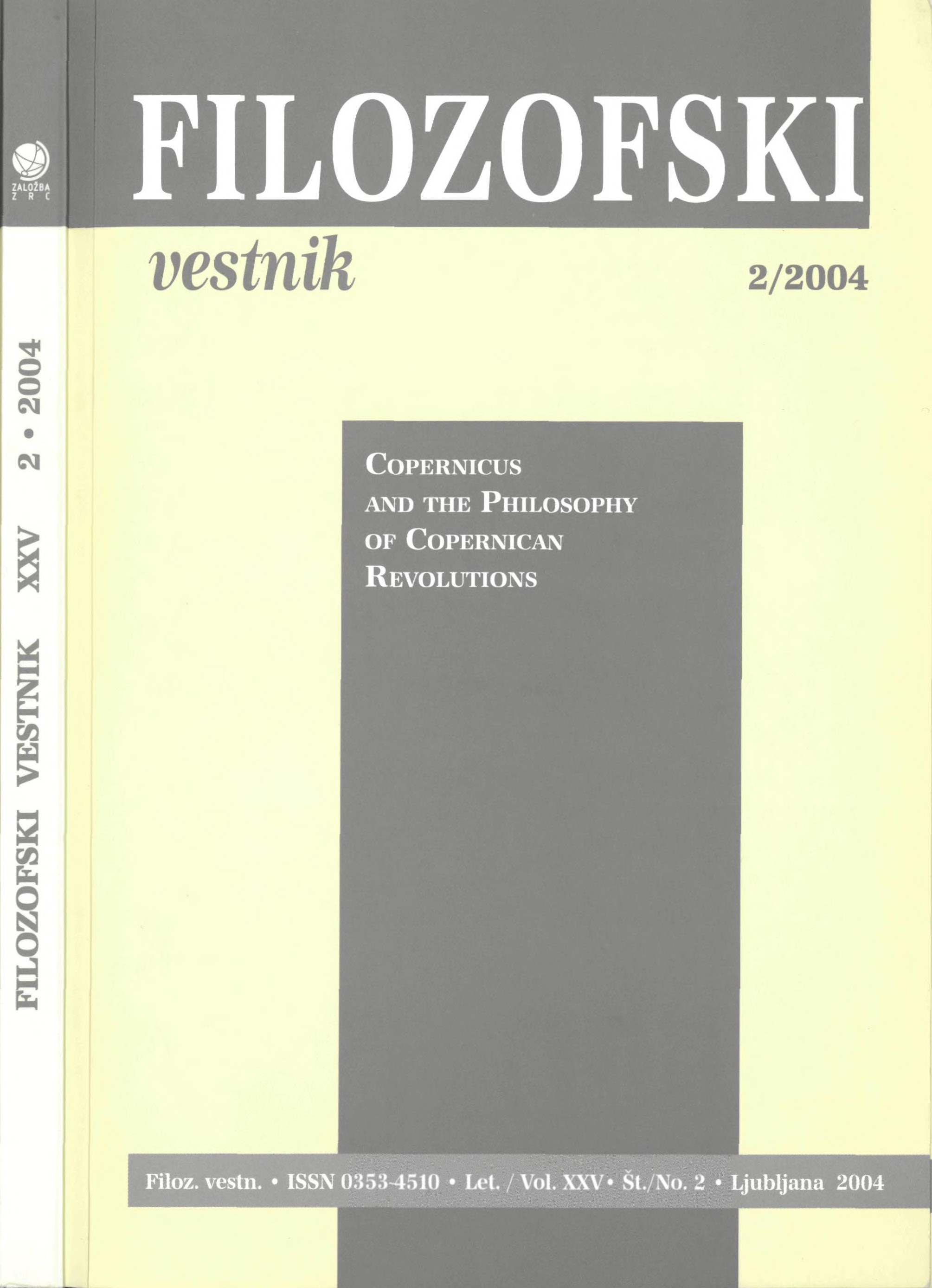Copernicus’ First Friends: Physical Copernicanism from 1543 to 1610
Povzetek
Between the appearance of Copernicus’ De Revolutionibus in 1543 and the works of Kepler and Galileo that appeared in 1609–10, there were probably no more than a dozen converts to physical heliocentrism. Following Westman we take this list to include Rheticus, Maestlin, Rothmann, Kepler, Bruno, Galileo, Digges, Harriot, de Zúńiga, and Stevin, but we include Gemma Frisius and William Gilbert, and omit Thomas Harriot. In this paper we discuss the reasons this tiny group of true Copernicans give for believing that Copernicus, not Ptolemy or Tycho Brahe, was correct. We conclude that the early followers of Copernicus can be divided into two main groups, designated mathematicians and physicists. Two main arguments appear in the works of the former: first, the relationship between the velocity of a planet and its distance from the center of the world; second, the explanation of retrogradations. Early Copernicans differed on the reality of celestial spheres, and several attempted to reconcile heliocentrism with scripture. The mathematicians continued to accept a traditional definition of the scope of astronomy and the methods of science, both issues challenged by Kepler and Galileo. Hence the work of Copernicus set in motion a train of events that led to a decisive epistemological shift, but did not itself represent such a shift. The real revolution is the replacement of the methods and goals of Ptolemaic astronomy and Aristotelian physics with Copernicanism in its modern form, which incorporates the conceptual structure of Kepler and the astronomical evidence of Galileo.Prenosi
Podatki o prenosih še niso na voljo.
Prenosi
Objavljeno
2007-01-01
Kako citirati
Tredwell, K. A., & Barker, P. (2007). Copernicus’ First Friends: Physical Copernicanism from 1543 to 1610. Filozofski Vestnik, 25(2). Pridobljeno od https://ojs.zrc-sazu.si/filozofski-vestnik/article/view/3205
Številka
Rubrike
Copernicus and the Philosophy of Copernican Revolutions
Licenca
Avtorji jamčijo, da je delo njihova avtorska stvaritev, da v njem niso kršene avtorske pravice tretjih oseb ali kake druge pravice. V primeru zahtevkov tretjih oseb se avtorji zavezujejo, da bodo varovali interese založnika ter da bodo povrnili morebitno škodo.
Podrobneje v rubriki: Prispevki





